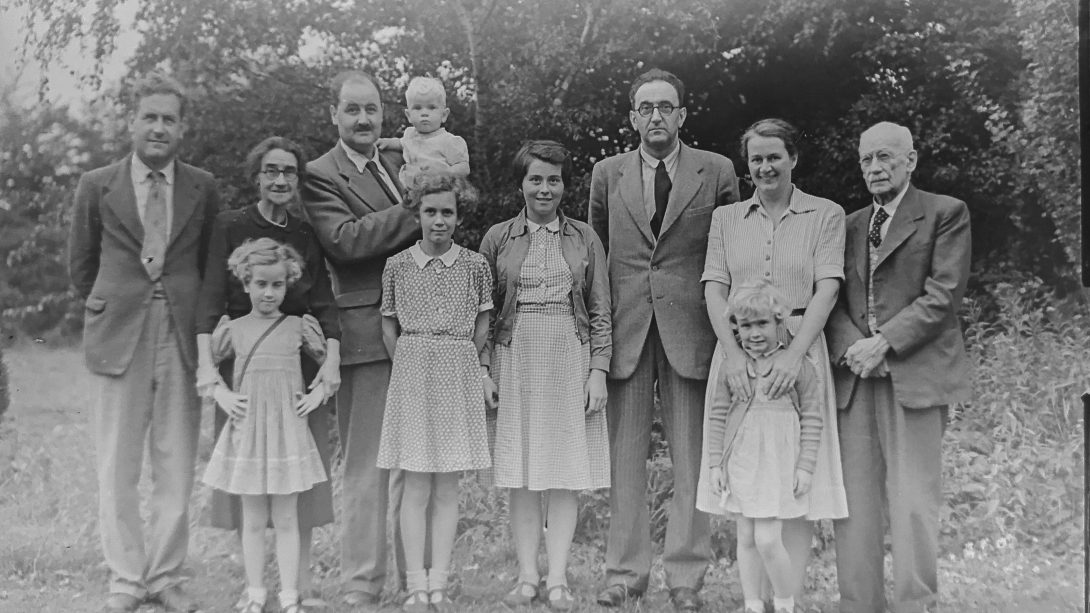In this episode, we’re going to begin unpacking the content of the Heidelberg Catechism (HC). The boxes are unloaded from the moving truck, they’re in the house, but now we have to open the boxes and put the truths in their respective places. We have three boxes: guilt, grace, gratitude. What truths are inside these boxes? Where do these truths belong in our lives? How will they serve us?
When someone is unpacking boxes in their new home, they often open a box and rediscover the contents. “Ah, that’s where that is. I’ve been looking for that!” They might pull out a picture and admire it as they find the perfect place to put it. As we open and unpack the guilt, grace, gratitude boxes of the HC, we want to carefully examine the theological truths in the boxes. We want to pick them up, admire them, and find the perfect place to put them in our thinking and living.
This Sunday, September 26, is the 39th Sunday of the year. So, we’re turning our attention to Lord’s Day 39. It’s just one question, question 104. So we’re unpacking the gratitude box (86-129). Inside the gratitude box is how God wants us to love Him and express our thankfulness for His grace. Inside the gratitude box are truths relating to our sanctification, the majority of the contents being an exposition of the Ten Commandments and the Lord’s Prayer. Inside the gratitude box are practical truths guiding Christians in how to love God and their neighbor. It’s a very hands-on and helpful box.
So it is essential that you know which box we’re unpacking, guilt, grace, or gratitude because it greatly influences how you hear the Biblical truths being explained.
HC 104 brings us to the Fifth Commandment. It asks, “What does God require in the fifth commandment?” Here’s where creeds, confessions, and catechisms are really helpful. They help us see the depth and riches of Scripture. We could just read the Fifth Commandment. It’s God’s sufficient Word. But, what does it mean? In reading the Fifth, we may miss the depths of the Fifth. The HC helps us open the box and carefully handle the many things in the box, things we may have missed without the HC, and these things fit in our house, they belong, they are meant to be lived. So, “What does God require in the fifth commandment?” The HC insightfully answers:
That I show all honor, love, and faithfulness to my father and mother and to all those in authority over me, submit myself with due obedience to their good instruction and discipline, and also have patience with their weaknesses and shortcomings, since it is God’s will to govern us by their hand. [1]
The Fifth Commandment is so much more than little kids obeying their mommies and daddies. It would be easy for us to read the Fifth and dismiss it because we no longer live at home with our parents. We understand that we should still honor, love, and serve our parents in some ways, but that’s as far as we might take it because we’re no longer in kindergarten. But the Fifth Commandment is much more, it’s deeper, it’s richer, it instructs us not only in how to honor, love, and submit to our parents but also how to do the same for every authority in our lives from the government to employers to professors to church elders.
At the heart of the Fifth Commandment is willing, humble, and honorable submission to earthly authority. And of course, behind the Fifth Commandment is the First Commandment which requires complete submission to God’s absolute authority. You and I will not willingly, humbly, and honorably submit ourselves to qualified earthly authority if we are not already submitted to God’s unqualified divineauthority. Romans 13:1 says “there is no authority except from God,” so we must realize that submission to lawful earthly authority is submission to God because God places earthly authorities over us.
There are many truths packed into the Fifth Commandment. I’m only going to address one simple truth today for your careful consideration. One way we honor our parents and other authorities over us is to “have patience with their weaknesses and shortcomings.” Patience is a fruit of the Spirit, so we desperately need God’s grace and Spirit to do the Fifth.
How have your parents failed you? How have they wounded you? In what ways did your father or mother use their authority unlawfully to hurt you? We have emotional, and maybe physical, scars from the way our parents treated us. We could say the same about our teachers, bosses, government officials, and church elders. We’ve all likely been wounded by the unlawful use of authority. That said, how does God want us to respond to the weaknesses and shortcomings of those in authority over us? In some cases, we ought to pursue justice. Honor, love, and faithfulness do not equate to turning a blind eye to justice or the consequences of sin. Victims of sexual abuse, political oppression, legal corruption, or the like should seek justice. Sometimes charges should be pressed. But in other circumstances, I think 1 Peter 4:8 applies, “Above all, keep loving one another earnestly, since love covers a multitude of sins.” The Fifth Commandment calls us to be patient when our parents and authorities fail us. Being a parent is hard. Being a president or governor or congressman is hard. Running a business and managing employees is hard. Are we patient with our parents, politicians, and employers? Do we give them the benefit of the doubt? Do we speak carefully, cautiously, and kindly when we express our concerns and disagreement with them? Do we seek to understand the difficulties they face? Do we love and encourage them in their work? Do we thank them? Do the authorities over us find us easy to lead? When authorities are just and when they’re unjust, our response must always be honor, love, and faithfulness for the glory of our King (and faithfulness sometimes means to respectfully speak up and dissent).
Physical danger and criminal acts aside, how should children respond to their parents when their parents are arrogant, overbearing, and unkind? How should anyone respond to authority when it’s arrogant, overbearing, and unkind? Jesus gave an answer in the Sermon on the Mount. He said,
But I say to you who hear, Love your enemies, do good to those who hate you, bless those who curse you, pray for those who abuse you . . . . as you wish that others would do to you, do so to them. (Luke 6:27–28, 31)
Sometimes our enemies are the people in authority over us. They sometimes hate us, curse us, and abuse us. They make our lives difficult. We must realize that Christ died to set us free from hatred, bitterness, disrespect, and retaliation. Christ delivered us from our sin and misery that we might serve him by loving our enemies. The love of Christ in us leads us to desire the good, and not harm, of even our enemies. The love of Christ compels us to do good to, to bless, to pray for those in authority over us whether they use their authority for good or bad. First, we need to realize what God is calling us to as Christians. Love. God is commanding us to honor, love, and submit to those in authority (only in so far as their use of authority is lawful). Second, we need to realize we can’t. Apart from divine grace, it’s impossible for us to honor and submit. So, we need the gospel of God’s grace in Christ to move us to love in this way. Third, we must ask God for His grace and Spirit to help us honor, love, and serve our authorities, and we must thank Him for His provision. As we trust God and depend on His grace, we will have the wisdom and strength to do the Fifth for God’s glory and the good of our authorities.
[1] This version of the Heidelberg Catechism is used by permission from the Standing Committee for the Publication of the Book of Praise of the Canadian Reformed Churches (CanRC). It has been lightly revised and edited. You can find the CanRC version printed in their Book of Praise: Anglo-Genevan Psalter (http://bookofpraise.ca/).
Scripture quotations are from the ESV® Bible (The Holy Bible, English Standard Version®), copyright © 2001 by Crossway, a publishing ministry of Good News Publishers. Used by permission. All rights reserved. May not copy or download more than 500 consecutive verses of the ESV Bible or more than one half of any book of the ESV Bible.



